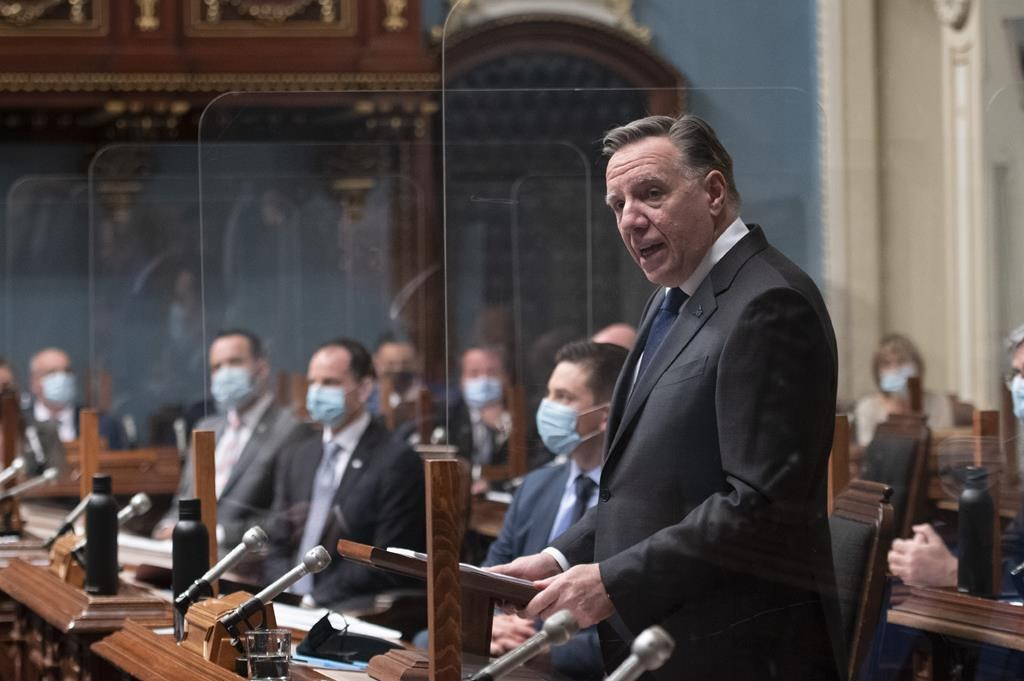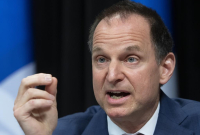Support strong Canadian climate journalism for 2025
Quebec Premier François Legault on Tuesday made decentralizing the province’s health system a key priority as he laid out the priorities for the final year of his government's mandate.
Legault presented his vision for post-pandemic recovery in a wide-ranging inaugural speech to the legislature that came after he announced the prorogation of the legislature on Oct. 7.
Legault said in his speech — the equivalent of a throne speech in other provinces — that it's time for Quebecers to look forward after the battle with COVID-19. “Now that the worst of the pandemic is behind us, it’s time for Quebec to project itself in the future,” he said.
In his hour-long speech, Legault listed off promises ranging from the creation of tens of thousands of daycare spots to creating a government cybersecurity department and ruling out future fossil oil extraction projects in the province.
He began with a promise to to undertake a "vast decentralization" of Quebec's health system by transferring power to regions and sub-regions.
"The people who are best placed to choose the best ways to meet our objectives are those on the ground, those who are close to the action," he said.
Legault admitted the current system was a "dysfunctional" one, where 40 per cent of workers work part time and the rest are forced into mandatory overtime, leading to resignations and burnout.
His plans include creating incentives to lure workers into the public system, reducing the province's dependence on private health-care agencies and ensuring all Quebecers have access to a family doctors, implying that the government is ready to intervene to ensure doctors take on more patients.
He also announced the government would end the pandemic state of emergency once children aged five to 11 are vaccinated against COVID-19, which he expects to happen in early 2022.
Legault promised to create 37,000 more daycare spots — without saying how he would do so — and outlined plans to make Quebec a global hub for electric transport and green hydrogen.
On the subject of the economy, he promised to address Quebec's labour shortage byadding 100,000 workers in such sectors as construction, information technology and engineering. He said there will also be incentives to keep older workers in the workplace.
Legault, however, appeared to rule out any large increase in immigration, noting that Quebec is already one of the places in the world that accepts the most newcomers. He said that while economic immigration is part of the solution to labour shortages, the system also needs to respect Quebec's capacity to integrate immigrants into "the realities of a French nation in North America."
"Quebec cannot have the same model of immigration as the rest of Canada," he said. "The survival of French requires a different approach."
At several points throughout the speech, Legault highlighted the need for "national cohesion," which he said was key to the province's fight with the pandemic.
"This long battle showed us to what point our national cohesion is critical," he said. "When Quebecers get together, they’re capable of great things."
To that end, he promised the creation of a course on Quebec culture and citizenship that will be taught in schools, as well as more public spaces dedicated to Quebec culture and history.
Addressing reporters after the speech, Liberal Leader Dominique Anglade said the address contained little that was new and only touched lightly on some of the most important issues for Quebecers, such as climate change and the cost of living.
“It took 53 minutes in the speech of Mr. Legault for him to speak once about climate change and environment,” she said. “Fifty-three minutes. That tells you about what priority he gives to this issue.”
Prorogation ended work on all bills before the legislature, but the government can bring back legislation it considers essential and pick up where it left off. The last time a Quebec premier prorogued the legislature was in 2011.
Legault's Coalition Avenir Québec government was elected in 2018, and under provincial law the next election is set for Oct. 3, 2022.
This report by The Canadian Press was first published Oct. 19, 2021.
— By Morgan Lowrie in Montreal





Comments